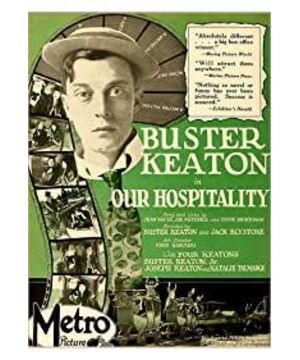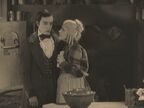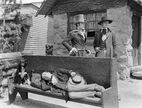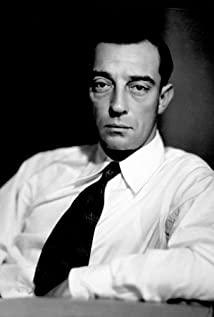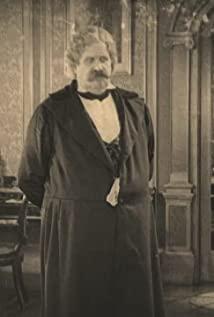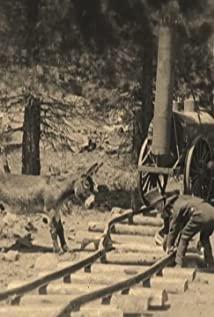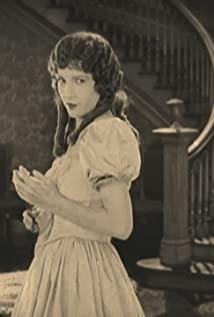Overall analysis
Keaton's comedies are not out of date. They focus on action and movement on the screen, and often use vehicles and chases as carriers. Dramatically, the unaware danger is approaching, unexpected sudden turns and unexpected, disjointed contradictory entanglement structures are often used to enhance the dramatic tension by repetition with changing tone.
However, the narrative is often weak and can only be justified, and the focus is still on taking a restrictive perspective to achieve comic effect.
On the one hand, by limiting the character's cognitive perspective, the audience is worried about the character, creating suspense, while the character uses coincidence or wit to avoid difficult situations under the condition of unconsciousness or sudden discovery.
On the other hand, by limiting the perspective of the play and the audience through colleagues, a certain solution is reserved, so as to cause surprise and sigh novel psychological reactions when it is revealed. In the first half of the film, Keaton has been in a state of ignorance of the crisis situation, and the audience feels novel and interesting in the state of being aware of Keaton's ignorance and repeatedly getting away with it. In the second half, Keaton understands the perils of the situation, uses the advantage of knowledge over ignorance, resolves dangers and bridges conflicts through tact and wisdom, and also gains happiness because of the excellence of his personal qualities.
And because the release of restrictions has become a necessary result of the narrative, the leap from restrictive to non-restrictive, from ignorance to omniscience, triggers the audience's joy at the release of the crisis (this is also the reason why the physiological response of laughter occurs in the development of species). ), and the comedic effect of a sense of transcendence that transcends the unknowing self of the past. At the same time, since the solutions are often unexpected and extremely novel, laughter is also elicited by the emotion and the incomprehensible response to the means themselves.
In character creation, the qualities of wit, wit, elegance and kindness can always be seen in the protagonists of Keaton's works. The protagonists often use these beautiful qualities of universal significance to lay the groundwork for solving difficulties later, or because of certain qualities. Action avoids harm.
His performances are characterized by a sense of indifference and melancholy, as if restrained and withdrawn from telling the funniest jokes. The sense of detachment from the characters who are not in the situation instead makes the audience show parent-like worry and concern when dealing with the crisis in which the characters are in, and their attention is not swayed.
This article takes hospitality as an example to analyze the comedy creation and style characteristics of Keaton's works.
Frame-by-frame analysis
The eldest son of the family who started the feud returns and wants to take revenge on John, and the crisis is approaching.
The oncoming crisis and family warmth form a hedge and threaten, thereby triggering the audience's inner worry and the suspense of the plot development, which tightens the audience's heartstrings.
The presentation of the rainy night visualizes the threat through the intermittent thunder and lightning, creating an ambiguous symbol of life and death in the future, and the use of light and dark cross has a terrifying effect in itself, and also restricts the integrity of information in the time flow.
John, who learned of the crisis, extinguished the candle to protect his family
The contrast of warm and cold light between indoors and outdoors also dissolves naturally, symbolizing that the crisis is approaching and there is no safe place.
The two sides had a gunfight outside the door, and the gunfire was highlighted in the night, and it was also said that the scenes showing the gunfight were limited to side descriptions, avoiding the immature performance routine of shooting death at that time.
After the loss of her husband, the wife went back to the depths of the room to comfort the frightened child. So far, there is no comedy plot, just the content explained by the foreground, but it echoes the last theme of hospitality, that is, the family harmony that was once guarded by gunfire and life will be guarded in another form in the future. .
The eldest son of the opposite family also died, and at the same time, the children of the two families were explained in the picture, indicating that the revenge will continue.
Son Keaton defected to his aunt. Years passed before his mother died. The two paths here also indicate that Keaton will not repeat the mistakes of his parents, and he can find another way.
Keaton, who was pedalling, was still graceful and hesitant, as if not in the situation. The audience can think inwardly that they are superior and laugh beyond it.
The passage of the police directing traffic seems useless, but in fact implies that the danger of the two families is mediated by some force.
For the extravagant and unique way of opening the door, Keaton completed it with seemingly ordinary behavioral logic.
The fantasy of John, who learns that he is going to inherit his father's estate, uses a slow-melting technique. At this point, a restrictive narrative mode has begun, and Keaton's vision of the legacy has a comic effect because of the disparity between the two families that was intuitively reflected through the interior of the home.
On the way to his hometown, the dog's follow-up has become a foreshadowing of an important dramatic element in the future. Its lively and cute appearance also adds vitality to the picture, which makes people unable to ignore it. In the process of going to my hometown, I always unintentionally reveal the dog's follow, attract the audience's attention, and stimulate the audience's thinking - what role it will play in the future.
The way the wagon rocks the chrysalis back and forth has a natural comic effect.
In many of Keaton's films, there are a large number of vehicles traveling and people chasing each other. This is the most cinematic content of the picture, and Keaton, who makes all kinds of delicate and dangerous actions in the movement, is also very unique. It still has a typical comedic effect to this day.
Throw rocks at the steam monsters along the way, in exchange for the peasants who return the driver's firewood
But collecting the fallen wood behind the car is obviously a very good "deal". This little scene is a gag, but it still has a surprising effect on the special purpose of the peasants.
Keaton, who wants to wear a hat in a car with little headroom, talks about curling up
But suddenly it hit the brakes, embedded in the hat, which he couldn't even remove because of the headroom. Be silly in front of the heroine who has a sense of distance. For an elegant and melancholy personality, this shyness brings a comical effect to the inadequacy of his actions, not his personality.
Keaton chose to change his casual top hat, succumbed to the environment to reduce his stubbornness, but still cold-faced, which made him look a bit funny.
For example, here, the picture of the dog running behind the car seems to be unintentionally brought, but the audience is attracted and mobilized, and has the expectation of seeing the function of the dog and what kind of role it plays.
The metaphor of the donkey stuck in front of the road here seems to be related to the cessation of disputes, especially in Kusturica's works.
The carriage passed a particularly bumpy road, which was very bumpy. After the situation was relieved, there was a sigh of relief.
However, he found that the car was no longer on the track. This kind of "no wonder" who was relieved to find that he was in a more dangerous situation once again teased the audience's IQ, and also had a sense of transcendence of Keaton, who was unaware of the situation.
Keaton gets into the car and calls for a stop, and the paragraph ends. The interesting point here is that the sound effect of the horn is perfectly adapted to the background music and becomes the composition of the soundtrack.
Part 2 Homecoming
Here is a shot of the dog at home, and it will not work after that. Therefore, here is a comparison between the body size of the two dogs and the strength of the two facing each other, resulting in a potential sense of "chasing and killing".
I received a letter saying that my sister is coming to the opposite family. It also brings out the luxurious interior.
The puppy was running under the wheel, but the wheel suddenly showed signs of loosening, which made people's natural love and affection worry, and hoped that the puppy would be okay.
The puppy overtook the car early, and it was all right, but the axle slipped and everyone was in danger.
Road workers mistakenly separated the head and tail of the train into different tracks, and even produced a comical scene where the carriage passed the front of the train.
The carriage of the car was forcibly stopped only after the stumps of the station were installed.
But to be hit by a train head. Here is a preliminary indication of the use of repetition in Keaton's films, where he constantly jabs at the audience's laughter through repetitions with shifts in which more meaning emerges.
Keaton Road, who is unfamiliar with the road conditions in his hometown, encounters a kind-hearted person who guides the way, but this man is the son of the enemy who hides a knife in a smile. He is borrowing a gun from a business on the street to get rid of Keaton. Here Keaton is unaware of the crisis, his back is to the danger.
The son who did not borrow a gun had to continue to lead the way humbly and respectfully. The repeated scene was repeated after that. The audience was amused by the repeated jumps in the contrasting attitude of the son who failed again.
The third time his son went to borrow a gun, Keaton was busy doing justice and pushing away the husband of the domestic abuser.
When he turned back, he was slapped on the ground by his wife who had just been raped
Wife who expelled Keaton and continues to suffer domestic violence from husband, this bizarrely bizarre triangular restraint chain makes people laugh at the confusion and amazement in hilarious scenes
The son who borrowed the gun failed to succeed because he acted bravely
At home, the family who borrowed the sister was very happy, and the sister was the woman next to Keaton.
Keaton's inner vision to see that the wooden hut is the inherited content: the fantasy explosion of the mansion makes the imagined failure materialize.
Keaton, who hesitated in front of the wooden house, was frightened by the falling structure of the dilapidated house just after entering the door. At this moment, he was temporarily homeless.
When the opponent saw Keaton passing by, the three tried unsuccessfully, and they also used repetition to enhance the dramatic effect.
Unbeknownst to him, Keaton is still confused by the sounds around him.
Keaton passes by a house, then turns around and ambush Keaton's son, but he can't fire a bullet.
The brave Keaton helped the "passer-by" again, but it was successfully fired. Because the powder gun needed reloading time, the Son Group missed the opportunity again.
On the way back, I pass the feuding couple again, and the repetition comes into play again.
With nothing to do, Keaton came to the lake to fish, not knowing that upstream farmers were blowing up dams to irrigate their fields.
Keaton, unaware downstream, is in a restrictive perspective, and the audience is concerned about the impending crisis situation.
Keaton, who couldn't catch it, reluctantly threw the fishing rod into the water, only to find that a fish had bit the hook at this time.
He jumped into the water and got back the fishing rod, but he found it was just a small fry
So he repurposed the fry as bait and continued to fish. This leads to the concept of misfortune and fortune in Keaton's comedies. Objectively, the process of throwing the fishing rod, catching fish, retrieving the rod, and sending small fry constantly jumps between misfortune and good fortune. As bait for catching big fish, it can reflect this transformation. Create immediate psychological pleasure by constantly interpreting yourself to create difficulties, solve them immediately, and reap the rewards.
The details of Keaton, who is covered in water, and the water still flowing in his trousers, are clearly intentional, and the corresponding sound effects illustrate this.
The harbingers of the flood came to the cliffs above Keaton's head, but he didn't know it.
The depth of field shot here uses a sudden waterfall to separate Keaton fishing in the background from the sons in the foreground looking for enemies, and Keaton is indirectly dismissed by an unexpected crisis from a more dire alarm.
The Luotangji in the temporary waterfall makes people wonder whether it is his love or a fluke, and they can't laugh or cry.
He was still washed ashore
At this moment, the hook in his hand was suddenly bitten by a big fish, and the pattern of interdependence between misfortune and fortune continued to entangle.
Keaton is brought back into the water by a massive pull and the paragraph ends.
The third part of the treat
The unreceived sons are ready to fill their stomachs first.
However, it is impossible to imagine that the young man brought by his sister is the son of the opposite family they are looking for.
Here comes the contradiction at the heart of the whole film, that the family insists on tradition and cannot kill guests in their own homes.
So when Keaton hangs out in the foreground, looking at the gorgeous decorations in the context of the background
In the background, the father is clearly itchy but unable to do it, forming a situation where the characters are restricted by rules.
Then Keaton heard his two sons whispering in the background.
Aware of his crisis situation, from ignorance to knowledge. This was the beginning, and Keaton went from a character who turned his back on a crisis and narrowly escaped to a man who deftly used conventional rules. Due to the limitation of the scene, the narrative space has changed from the exterior scene to the interior scene, and is even basically limited to the inside of this big house.
His first reaction was to run away, and he was immediately chased by the two brothers, who were waiting for such a good opportunity.
Keaton reluctantly went around the other door, showing a polite and respectful appearance to the guest in front of his father. The three of them thought about the tradition of not hurting the guests at home, and they also took care of their sister's emotions.
Keaton was invited to pray at the end of the meal, and the pastor came and was invited. Here's a set of tangents that intuitively explain the idiom of each having a ghost.
Everyone tacitly spied on each other during prayer sessions
At this point, the intense drama tension in the environment is on the verge of breaking out.
The sudden fall of the servant as he delivered the meal made Keaton feel like a bird in shock. Here, the potential sense of crisis and tension in the environment is released through a mishap of an arrangement, and the potential undercurrents come to the fore.
The opposite father, who was sharpening the knife and wanted to cut the meat, kept swinging the knife close to Keaton, intentionally or unintentionally, which was a concrete explanation of the threat.
Keaton reluctantly raised his collar, as if it could stop a knife, and this act of self-comfort and self-deception was done in earnest, and the comedy in it was self-evident.
The dog appears suddenly at this point, emphasizing the imminent drama.
After the meal, the family can't wait to see the "guest" off
Keaton shakes hands with everyone
Shaking hands with everyone again, in order to avoid the danger of going out, he can't wait to delay for a while. His need for a reasonable excuse not to leave the house becomes the dramatic motivation for the next series of actions.
While the pastor was chatting with his family, he still put his hat under the chair, making his own reasons for not leaving.
He looked for it again on his own. At this time, Keaton and the audience were both omniscient, while the family belonged to a state of ignorance. Playing the family with the help of the rules became the theme of the second half.
When everyone was looking around, the sensible and well-behaved dog found the owner's hat and brought it back. This natural motivation was against Keaton's deliberately hiding the hat.
He had to grab it and threw the hat back
And the puppy became more and more proficient, repeatedly picking out the hat without thinking. Keaton's approach to repetition is similar (no insulting connotation) for both the dog and the audience, which is to intensify the audience's comedic response with a reasonable amount of over and over again, with better effect in pitch.
Everyone is watching him "find" the lost hat
Keaton had to pretend he was playing with the puppy with his hat
Seeing the hat, the family couldn't wait to force Keaton away. Keaton instead started a lively puppy show.
Seeing this situation, the interesting look on the younger sister's face made the family withdraw the gun again.
At this time, the dog suddenly ran out
Keaton got the dog back right away
The unwitting pastor was already leaving, but the heavy rain in the background announced that the two guests would stay overnight.
Keaton followed the pastor and sister upstairs.
the fourth part
View more about
Our Hospitality reviews


